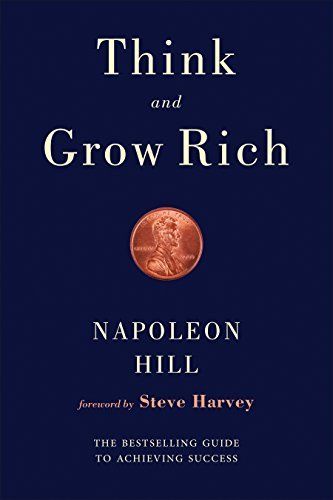Snippets about: Self-Help
Scroll left and right !
Meeting Your Future Self
Just as psychotherapists use inner child work to reconnect with your younger self, you can use a visualization technique to connect with your highest potential future self.
To practice this:
1. Find a quiet place when you feel relaxed and open to guidance
2. Imagine sitting at a comfortable table and invite your future self to join you
3. Ask specifically for your highest possible version to appear
4. Pay attention to how they look, behave, and what their expressions communicate
5. Keep yourself open to whatever wisdom they want to share
You can also reverse this by imagining yourself sitting with your past self from 3-7 years ago, handing them the keys to your current life. The process should leave you feeling calm, affirmed, and self-assured about your path forward.
Section: 1, Chapter: 6
Book: The Mountain Is You
Author: Brianna Wiest
"Pain Is The Experience Of Life Itself"
"This is the most important realization a person can make about pain: the moment we believe we 'shouldn't' have pain in life is the moment we feel the most pain. This is what is so devastating about the self-help industry. The idea that you can simply self-help away your problems is a philosophical stance that creates more problems because it denies the very existence of problems in the first place. Pain is not a problem. Pain is the experience of life itself."
Section: 2, Chapter: 7
Book: Everything is F*cked
Author: Mark Manson
Power Comes From Within, Not From Controlling Others
Chapter 2 redefines power as personal empowerment - the sense that you are in control of your own job, life and decisions. This contrasts with the common view of power as exerting control over others.
Three ways to build personal power are:
- Boost confidence through tactics like "flipping the confidence switch" and seeing successful role models
- Level up skills by adopting a "beginner's mindset" and teaching others what you know
- Take ownership by choosing your mindset and focusing on the process even when you can't control outcomes
Section: 1, Chapter: 2
Book: Feel Good Productivity
Author: Ali Abdaal
We Rationalize Reality To Make It Feel Okay
The human brain has a powerful built-in ability to make the best of undesirable situations - to reframe negative events in a positive light in order to maintain a reasonably happy baseline. This tendency is called the "psychological immune system."
- When rejected for a job, we decide it wasn't the right fit for us anyway.
- When a relationship ends, we focus on our ex-partner's flaws that we're now free of.
- When we fail to achieve a goal, we discover that other goals matter more to us.
By shifting our perspective, we can dampen the emotional impact of negative events and experiences. Our psychological immune system lets us feel okay about things that didn't go our way by finding a positive angle. It helps us adapt to unpleasant realities.
Section: 5, Chapter: 8
Book: Stumbling on Happiness
Author: Daniel Gilbert
Coping When it Counts
Elite athletes, emergency responders, surgeons - high stakes are just another Tuesday for these folks. Yet they consistently rise to the occasion. Their secret? A challenge mindset.
Research shows how you mentally frame stress changes how it physically impacts you. Seeing stress as a tool to sharpen your skills has the opposite effect - you feel more confident, energized and in control.
- Normalize it. Remind yourself that feeling adrenalized before a big event is human and helpful. Those jitters are gearing you up to rock it.
- Mine it for meaning. How does this challenge tie to your larger purpose? Let that big picture view put things in perspective.
- Visualize your coping. Imagine yourself navigating discomfort gracefully, not just a flawless end product. Mental rehearsal primes your brain for success.
- Aim for excellence, not perfection. Perfection is brittle and binary. Excellence allows for humanity while still reaching high.
Section: 7, Chapter: 31
Book: Why Has Nobody Told Me This Before?
Author: Julie Smith
Self-Acceptance Is Not Self-Affirmation
The philosopher stresses that accepting oneself is not the same as affirming or esteeming oneself. Self-acceptance means acknowledging reality, while self-affirmation means clinging to a positive illusion.
Self-acceptance means facing oneself squarely, acknowledging one's objective limitations alongside one's strengths. Only by grounding in truth can one determine the proper path forward. Sugarcoating reality feels good in the moment but leads one astray in the long run. Accept what is, then orient toward what could be.
Section: , Chapter: 44
Book: The Courage to Be Disliked
Author: Ichiro Kishimi and Fumitake Koga
People Can Change At Any Time
A core tenet of Adlerian psychology is that people can change. Your personality and way of living are not fixed by your past experiences or traumas. Freudian etiology looks at the past to find causes, while Adlerian teleology focuses on the present and future to find the purpose behind behavior.
As Adler states: "No experience is in itself a cause of our success or failure. We do not suffer from the shock of our experiences - the so-called trauma - but instead we make out of them whatever suits our purposes. We are not determined by our experiences, but the meaning we give them is self-determining."
In other words, you are not doomed by your past - you have the power to give new meaning to your experiences and change your way of living starting today. People are always selecting their own lifestyles in each present moment.
Section: 1, Chapter: 3
Book: The Courage to Be Disliked
Author: Ichiro Kishimi and Fumitake Koga
The Counterintuitive Approach To Living A Good Life
In the introduction, Mark Manson argues that the key to living a good life is not trying to be positive all the time. Instead, we need to become better at handling adversity, accepting our limitations and flaws, and learning how to not give a f*ck about things that don't really matter. Manson acknowledges this approach is counterintuitive in an age obsessed with positive thinking and self-help mantras.
Section: 1, Chapter: 1
Book: The Subtle Art of Not Giving a F*ck
Author: Mark Manson
Your Mountain Is You
In the end, it is not the mountain that you must master, but yourself.
Section: 1, Chapter: 1
Book: The Mountain Is You
Author: Brianna Wiest
The Self-Awareness Onion
Manson introduces the concept of the "Self-Awareness Onion," which has three layers:
- A simple understanding of one's emotions
- An ability to ask why we feel certain emotions
- Our personal values: How we measure ourselves (and how we measure others)
Manson argues that we must peel back these layers to understand our values and what truly matters to us. It's hard work, but it's essential for making wise choices and building a meaningful life. Most people get stuck on the first or second layer.
Section: 1, Chapter: 4
Book: The Subtle Art of Not Giving a F*ck
Author: Mark Manson
Expand Your Emotional Vocabulary
The more precise your language is to describe your inner world, the better equipped you are to handle it skillfully. But many of us have a limited emotional vocabulary, defaulting to vague labels like "good" or "bad." Expanding your feeling word repertoire can actually help regulate emotions and cope with stress.
- Get specific - Go beyond "happy" or "sad". What subtle flavors or layers are present?
- Use metaphor - If your feeling was a color, texture, or weather pattern, what would it be?
- Consult a feelings wheel - Psychologists have mapped out the spectrum of emotions to help you pinpoint your experience.
When you can precisely articulate what you feel, you open up more possibilities for how to address it. Naming tames - it's the first step to gaining mastery over your emotions vs. being controlled by them.
Section: 3, Chapter: 12
Book: Why Has Nobody Told Me This Before?
Author: Julie Smith
Visualize Your Life As A Machine Outputting Outcomes
A powerful mental model Ray Dalio suggests is to visualize your life as a machine producing outcomes. Your machine takes inputs (your goals and desires), and outputs results. If the output doesn't match the desired input, you need to examine your machine to see what isn't working and how to fix it.
This means being radically open-minded both about the design of your machine (your habits and strategies) and about your performance in operating it (your day-to-day behaviors). Constantly compare your outcomes to your goals, and use the gaps to stimulate reflection and redesign. As Dalio advises:
"Think of yourself as a machine operating within a machine and know that you have the ability to alter your machines to produce better outcomes."
Section: 1, Chapter: 8
Book: Principles
Author: Ray Dalio
When to Seek Help
Mental health exists on a continuum - it naturally fluctuates based on life circumstances. We all have bad days, but if your low mood, anxiety or apathy are consistently interfering with your ability to function, it may be time to enlist backup.
Reaching out takes courage, but it's a sign of self-awareness, not brokenness. Therapists act as objective guides, equipping you with evidence-based tools to navigate life's inevitable ups and downs. They create a safe space to be radically honest, without the pressure to perform or people-please.
Section: 8, Chapter: 36
Book: Why Has Nobody Told Me This Before?
Author: Julie Smith
Reframing Experiences as Challenges
"Reframing does not mean that you deny the inherent risks in a given situation. There was still a risk of failing my exam. But if I chose to focus exclusively on that risk then my stress response might have been much higher and I probably would have found it much more difficult to perform.
Reframing is when you allow yourself to consider reinterpreting the situation in a way that is going to help you move through it. Reframing an experience as a challenge can help us to shift from the flight urge to a somewhat more controlled fight urge. We can move towards something with intention."
Section: 6, Chapter: 25
Book: Why Has Nobody Told Me This Before?
Author: Julie Smith
"We Are The Stories We Tell Ourselves"
"We all have stories we tell ourselves about ourselves, stories that define our sense of self. When these stories are disrupted or invalidated, it can send us into crisis. But it can also open the door to writing a new story. We are the stories we tell ourselves. And to become a better story is to become a better self."
Section: 2, Chapter: 9
Book: Everything is F*cked
Author: Mark Manson
The Uses of Adversity
Haidt explores the concept of post-traumatic growth - the idea that struggling with adversity can sometimes make people stronger, wiser, and more fulfilled in the long run. While trauma is of course negative in the short-term, overcoming it can increase resilience, self-understanding, and ability to cope with future challenges. Key mechanisms of growth include:
- Revealing hidden abilities and changing self-concept
- Strengthening relationships through crisis
- Shifting priorities and philosophies
Not all adversity leads to growth - trauma can be shattering if it is too severe or the person lacks sufficient support and resources to cope.
Section: 1, Chapter: 7
Book: The Happiness Hypothesis
Author: Jonathan Haidt
Embrace Reality And Deal With It
In the first chapter of Life Principles, Ray Dalio emphasizes the importance of embracing reality rather than wishing it was different. As he puts it:
"There is nothing more important than understanding how reality works and how to deal with it."
He advises approaching life as a game where your goal is to face challenges and figure out how to get around them. Don't let your emotions cloud your thinking - try to perceive reality as objectively as possible and then figure out how to operate within it to get what you want. Be radically transparent with yourself and others about what reality is, even if it's not pretty or pleasant. Only by honestly confronting the facts can you hope to shape them.
Section: 2, Chapter: 1
Book: Principles
Author: Ray Dalio
Self-Knowledge Means Understanding Your Strengths And Limitations
Self-knowledge is clearly seeing what you are capable of and what you are not, what is in your control and what isn't. It's being aware of your blind spots and areas of vulnerability.
A key aspect of self-knowledge is calibrating the boundaries of your expertise. The size of your knowledge is not as important as recognizing its limits. Don't claim proficiency you don't have. The most valuable people aren't those with the most knowledge, but those who clearly acknowledge what they do and don't know.
Self-knowledge also means understanding the circumstances that trigger your defaults. What situations tend to make you emotional, egotistical, inertial or conformist? Identifying your weaknesses is crucial to managing them.
Section: 2, Chapter: 2
Book: Clear Thinking
Author: Shane Parrish
Follow Your Passion Is Incomplete Advice
"Follow your passion" has become a cultural cliché and go-to advice for career seekers. But it's overly simplistic and misleading. Most people early in their careers don't have pre-existing passions to follow.
Research shows that people perform better and are more satisfied when what they do aligns with their personal interests. But passions are developed, not just stumbled upon fully-formed.
A more complete version of the advice would be "Foster a passion." Instead of trying to discover your one true calling, actively explore and cultivate different interests. Treat interests as possibilities to explore, not preexisting traits. Be patient in developing your interests before expecting a clear passion to emerge.
Section: 2, Chapter: 6
Book: Grit
Author: Angela Duckworth
Releasing Unrealistic Expectations
"When you only find happiness and peace after you've fixed every flaw, mastered every challenge, and are living decidedly in the 'after' part of the picture of your life, you have not resolved anything. You have only reinforced the idea that you cannot be okay until everything is perfect."
Section: 1, Chapter: 5
Book: The Mountain Is You
Author: Brianna Wiest
The Science Of Heartbreak
Breakups feel like the end of the world for good reason - our brains process social rejection like physical pain. fMRI studies show that when we look at a photo of an ex after a split, the same regions light up as when we burn our hand on a stove. Heartbreak is a form of withdrawal, complete with cravings, obsessive thoughts, and compulsive behaviors.
But just because it feels like you'll never recover doesn't mean you won't. Post-breakup, our minds tend to conjure an unrealistic highlight reel of the relationship. We remember the best parts and forget the everyday annoyances and incompatibilities.
Remember, be patient with yourself. Studies show it takes 3 months on average for our brains to return to equilibrium after a split. In that time, grief is not only normal but necessary. The only way to the other side of heartbreak is through.
Section: 3, Chapter: 16
Book: How to Not Die Alone
Author: Logan Ury
Self-Acceptance Fuels Growth, Not Complacency
A common fear about self-acceptance is that it will lead to stagnation. If you're content as you are, where's the drive to improve? But this belief confuses self-acceptance with complacency. True self-acceptance galvanizes growth, it doesn't obstruct it.
Self-acceptance means receiving your whole self - strengths and struggles alike. It's a stable foundation to build from vs. the rollercoaster of only feeling good enough when you achieve. You can strive from a place of worthiness rather than lack.
Self-acceptance takes practice. Start by noticing your self-talk. Where is it harshly critical vs. compassionately honest? Meet your inner critic with understanding, then experiment with kinder language. Commit to having your own back, come what may.
Section: 5, Chapter: 21
Book: Why Has Nobody Told Me This Before?
Author: Julie Smith
Embrace Your Fallibility To Bounce Back
The fear of messing up keeps many people playing small in life. Mistakes can feel like proof that we're inadequate. But what if you could face slip-ups without losing faith in yourself? The key is self-compassion - extending the same grace to yourself that you would a good friend.
- Acknowledge the universality of imperfection. Messing up is part of the shared human experience, not a character flaw.
- Stick to the facts. Describe what happened objectively without globalizing (e.g. "I missed that deadline" vs. "I'm a failure").
- Investigate with curiosity. What factors contributed to this situation? What could you do differently next time?
- Encourage yourself. What would a compassionate mentor say to keep you moving forward? Now direct those words at yourself.
- Reconnect to your why. Will beating yourself up help you show up as the person you want to be? Probably not.
Section: 5, Chapter: 20
Book: Why Has Nobody Told Me This Before?
Author: Julie Smith
The Feedback Loop From Hell
The "Feedback Loop from Hell" refers to the cycle where we feel bad about feeling bad, which makes us feel even worse. For example:
- We feel anxious about feeling anxious
- We get angry that we're feeling angry
- We feel guilty about feeling guilty
This leads us into a downward spiral. The more we try to avoid negative emotions, the more powerful they become. Manson argues the solution is to accept negative emotions as a normal, inevitable part of life rather than desperately trying to escape them.
Section: 1, Chapter: 1
Book: The Subtle Art of Not Giving a F*ck
Author: Mark Manson
Turn Anxiety Into Motivation
Imagine you're about to have a difficult conversation with a colleague who has been underperforming. As the meeting approaches, your anxiety builds until you're physically tense and mentally churning. Now imagine naming this anxiety out loud to your colleague at the start of the meeting.
What effect might this preface have on the conversation? Research suggests it could be transformative:
- By acknowledging your own anxiety, you create permission for your colleague to do the same, normalizing vulnerability and creating psychological safety.
- By framing the conversation as a shared challenge, you invite your colleague to be part of the solution rather than a target of criticism.
- By expressing your commitment to the relationship, you reduce the threat of the feedback and increase motivation to change.
Naming anxiety is a simple but powerful way to break the ice and short-circuit defensive routines in any high-stakes interaction.
Section: 2, Chapter: 12
Book: The Culture Code
Author: Daniel Coyle
Discovering Your Payoffs For Staying Stuck
Often, we stay in unfulfilling situations because there are hidden "payoffs" that keep us there. These payoffs might include a sense of security, avoiding the discomfort of change, or getting to be right. Jeffers recommends making a list of all the payoffs you get from staying stuck in some area of your life. Once you're aware of these payoffs, you can consciously choose to let them go and move forward. Awareness is the key to breaking free from self-imposed limitations.
Section: 1, Chapter: 4
Book: Feel The Fear And Do It Anyway
Author: Susan Jeffers
The Three Critical Steps to Overcoming Life's Obstacles
Overcoming obstacles is a discipline of three critical steps:
- Perceive things as they are (Perception),
- Take appropriate action (Action),
- Cultivate an indomitable will (Will).
Perception involves controlling emotions and objectivity assessing the situation. Action means breaking down problems and acting appropriately. Will is the inner strength and resilience to handle defeat and difficulty.
Section: 1, Chapter: 1
Book: The Obstacle Is the Way
Author: Ryan Holiday
Miscarriage Is Not Your Fault - Resisting The Guilt Spiral
Almost all those interviewed believed they somehow caused their pregnancy loss. In reality, the cause is unknown in most cases.
As Dr. Katharine White states: "No matter how educated somebody is...everyone is looking for the thing that they did. ... 'If only' gets a hold and won't let go."
- If your provider says the loss is not your fault, believe them. Repeat it like a mantra if needed.
- Recognize that guilt is a normal grief reaction, not a reflection of truth. Talk back to self-blame.
- Don't indulge "if only" thoughts. Playing a loss over and over to see what you could have done differently will only deepen pain.
- Know you're not alone. Miscarriage occurs in 10-20% of known pregnancies. Stillbirth occurs in 1 in 175 pregnancies. These statistics reflect biological realities, not personal failings.
Section: 2, Chapter: 6
Book: I'm Sorry for My Loss
Author: Rebecca Little, Colleen Long
On Journaling
"The aim is to build on your ability to reflect on your experiences and how you responded to them...Metacognition involves reflecting on those thoughts and how they further impacted on your experience...Journaling in this way can feel strange if we are used to glossing over things without paying too much attention to the details. But over time those details can help us to build our awareness of our experience in hindsight, as we start to spot the cycles and patterns of behaviour in the moment, as they happen."
Section: 2, Chapter: 9
Book: Why Has Nobody Told Me This Before?
Author: Julie Smith
"Everything Always Sucks, Some Of The Time"
"This is your mission, your calling: to act without hope. To not hope for better. To be better. In this moment and the next. And the next. Everything is fucked. And hope is both the cause and the effect of that fuckedness."
Section: 1, Chapter: 2
Book: Everything is F*cked
Author: Mark Manson
Cultivate These 5 Mental Health Defense
Just as the body needs good nutrition, the mind needs consistent nourishment too. Make a habit of tending to these 5 "defense players" to fortify your mental health:
- Exercise - Boosts mood, energy and cognitive function. Find something you enjoy and can stick with.
- Sleep - Poor sleep makes everything harder. Optimize your wind-down routine and sleep environment.
- Nutrition - Food feeds the brain. Traditional diets like Mediterranean show mental health benefits. Make small improvements where you can.
- Routine - Having a daily rhythm balances your nervous system. Notice when you get off track and course correct.
- Connection - Social support is vital for wellbeing. Prioritize time with others even when you don't feel like it.
Section: 1, Chapter: 5
Book: Why Has Nobody Told Me This Before?
Author: Julie Smith
Developing Faith Through Auto-suggestion
Hill describes faith as the "eternal elixir" that gives life and power to the impulse of thought. He argues that faith can be developed through the principle of auto-suggestion - the practice of influencing one's subconscious mind through self-administered stimuli. Hill provides a "self-confidence formula" to cultivate faith:
- Demand of yourself persistent, continuous action toward your goal.
- Visualize yourself already in possession of your goal.
- Devote time daily to developing self-confidence.
- Write out a clear description of your definite chief aim.
- Recognize that you can achieve your goal through self-confidence, cooperation with others, and ethical behavior.
By repeating this formula daily, Hill claims one can gradually influence their thoughts and actions to build self-reliance and success.
Section: 1, Chapter: 3
Book: Think and Grow Rich
Author: Napoleon Hill
Self-Sabotage Is A Coping Mechanism
Self-sabotage is what happens when we refuse to consciously meet our innermost needs, often because we do not believe we are capable of handling them.
We sabotage relationships because what we really want is to find ourselves, though we're afraid to be alone. We sabotage professional success because what we really want is to create art. We sabotage our healing journey by psychoanalyzing our feelings to avoid experiencing them. We sabotage our self-talk because if we believed in ourselves, we'd feel free to take risks and be vulnerable.
In the end, self-sabotage is very often just a maladaptive coping mechanism, a way we give ourselves what we need without having to actually address what that need is.
Section: 1, Chapter: 2
Book: The Mountain Is You
Author: Brianna Wiest
The Power Of 100% Commitment And Acting "As If"
To fully engage with each area of your Whole Life Grid, Jeffers recommends two powerful practices:
- Make a 100% commitment to each area of focus, giving it your full attention and effort when you're engaged with it.
- Act "as if" you really count and your presence makes a difference.
This shift in mindset energizes you and attracts more positive experiences. By applying these practices consistently, you build a sense of purpose and fulfillment in all areas of your life.
Section: 1, Chapter: 8
Book: Feel The Fear And Do It Anyway
Author: Susan Jeffers
The Pain Of "Yes" Vs. The Pain Of "No"
When faced with challenging situations, we often have two choices: to say "yes" or to say "no."
Saying "no" may provide temporary relief or a sense of control, but it ultimately leads to stagnation, resentment, and a victim mentality. Saying "yes," on the other hand, opens us up to growth, learning, and new possibilities. While saying "yes" may involve discomfort or pain in the short term, it allows us to move through difficulty and come out stronger on the other side.
Section: 1, Chapter: 9
Book: Feel The Fear And Do It Anyway
Author: Susan Jeffers
Criticism Only Has The Power You Give It
We're wired to care what others think of us because for our ancestors, group acceptance meant survival. But today, not all criticism is created equal - some of it can help you grow, while the rest is just noise.
- Consider the source. Is it coming from someone whose opinion you value?
- Depersonalize it. Criticism often says more about the giver than the receiver. Try not to take it as a referendum on your worth.
- Learn from it. If the feedback is constructive, ask yourself how you can apply it. If it's unhelpful, let it go.
- Boost your self-worth. Ground yourself in your values so you're not dependent on others' approval.
- Communicate boundaries. If someone is repeatedly critical, it's okay to limit your exposure or tell them how it impacts you.
You can't control what others say, but you can control how much power you give their words. Sorting helpful from unhelpful feedback is a skill that frees you to take risks and keeps you growing.
Section: 5, Chapter: 18
Book: Why Has Nobody Told Me This Before?
Author: Julie Smith
Stress Is Your Body's Built-In Turbo Charge
Stress has a PR problem. It's vilified as the root of all modern maladies, a bug in the system to be eradicated. But what if stress is a feature, not a flaw? What if harnessing it is the key to peak performance?
Consider stress on a spectrum: Too little stress - Boredom, stagnation, low motivation Optimal stress - Enhanced focus, decisiveness, mobilized energy Too much stress - Impaired judgment, irritability, physical strain
Stress is simply your body's response to a perceived challenge. It rallies your resources - increasing heart rate, breathing and adrenaline - to help you rise to the occasion. Stress only becomes a problem when it's chronic, with no chance for recovery in between.
Section: 7, Chapter: 28
Book: Why Has Nobody Told Me This Before?
Author: Julie Smith
"Compare And Despair"
Many twentysomethings feel like they are falling behind based on the curated versions of their peers' lives they see on social media. They imagine everyone else is more successful and fulfilled.
But people tend to post only the positive highlight reel of their lives, not the behind-the-scenes struggles. Measuring yourself against this distorted mirror inevitably leads to frustration. Focus on your own path and resist drawing false comparisons. Everyone's life is full of ups and downs.
Section: 1, Chapter: 4
Book: The Defining Decade
Author: Meg Jay
"To Build Confidence, Go Where You Have None"
"Confident is not the same as comfortable. One of the biggest misconceptions about becoming self-confident is that it means living fearlessly. The key to building confidence is quite the opposite. It means we are willing to let fear be present as we do the things that matter to us.
When we establish some self-confidence in something, it feels good. We want to stay there and hold on to it. But if we only go where we feel confident, then confidence never expands beyond that. If we only do the things we know we can do well, fear of the new and unknown tends to grow. Building confidence inevitably demands that we make friends with vulnerability because it is the only way to be without confidence for a while."
Section: 5, Chapter: 19
Book: Why Has Nobody Told Me This Before?
Author: Julie Smith
Fear Will Never Go Away
"As long as you continue to push out into the world, as long as you continue to stretch your capabilities, as long as you continue to take new risks in making your dreams come true, you are going to experience fear."
Section: 1, Chapter: 2
Book: Feel The Fear And Do It Anyway
Author: Susan Jeffers
The Choice Is Always Yours
In chapter 5, Manson hammers home the point that you are always responsible for your life situation, because you are always choosing:
- Even when you feel trapped, you are choosing (e.g. choosing to stay in a bad job or relationship)
- Even if you didn't directly cause your current problems, you're responsible for how you react to them
- Taking responsibility for your problems is hard, but also empowering. It lets you affect your situation rather than being a helpless victim.
Many people deny responsibility because it's painful in the short-term. But in the long-run, it's the only path to an authentic and fulfilling life. Blaming your problems on others just makes you dependent and bitter.
Section: 1, Chapter: 5
Book: The Subtle Art of Not Giving a F*ck
Author: Mark Manson
Signs You're In A Self-Sabotage Cycle
You may be in a cycle of self-sabotage if:
- You're more aware of what you don't want than what you do want
- You spend more time trying to impress people who don't like you than with people who love you
- You're putting your head in the sand about basic facts of your life
- You care more about convincing others you're okay than actually being okay
- Your main priority is being liked, even at the expense of being happy
- You're more afraid of your feelings than anything else
- You're blindly chasing goals without asking why you want them
- You're treating your coping mechanisms as the problem rather than addressing the underlying needs
- You value your doubt more than your potential
- You're trying to care about everything instead of prioritizing what matters most
Section: 1, Chapter: 2
Book: The Mountain Is You
Author: Brianna Wiest
iques for Steadying Your Nerves During Challenging Times
When faced with obstacles or stress, you can steady your nerves by:
- Catching your mind when it wanders to negative thoughts or worst-case scenarios
- Focusing on the present moment and task at hand, not getting distracted
- Discarding thoughts that aren't constructive
- Reminding yourself that stress and pressure will pass
- Preparing yourself to calmly face challenges without getting rattled
Section: 1, Chapter: 2
Book: The Obstacle Is the Way
Author: Ryan Holiday
Spot And Label Thought Biases
We all experience thought biases, especially when mood is low, that negatively color our perspective. Some common ones include mind reading (assuming you know what others think), overgeneralization (applying one negative event to everything), emotional reasoning (I feel it so it must be true), and all-or-nothing thinking.
Strategies to counter biased thoughts:
- Recognize thoughts are not facts but one possible interpretation
- Get in the habit of noticing and labeling biases when they occur
- Consider alternative perspectives by talking to others
- Practice mindfulness to step back and observe thoughts without judgement
Naming thought distortions helps you gain distance from them so they have less power over your emotions. You can't control what thoughts pop up, but you can change your relationship to them.
Section: 1, Chapter: 2
Book: Why Has Nobody Told Me This Before?
Author: Julie Smith
Six Steps to Turn Desire into Riches
Hill outlines a specific process to transform desires into tangible wealth:
- Fix in your mind the exact amount of money you desire.
- Determine precisely what you intend to give in return for the money.
- Establish a definite date by which you intend to acquire the money.
- Create a definite plan to carry out your desire, and begin at once.
- Write out a clear, concise statement of the amount of money you intend to acquire, the time limit, what you plan to give in return, and your plan to acquire it.
- Read your written statement aloud twice daily - once before sleeping and once after waking.
Hill emphasizes that this process requires more than just wishing; it demands a burning obsession coupled with unwavering faith and persistent action.
Section: 1, Chapter: 2
Book: Think and Grow Rich
Author: Napoleon Hill
Admitting Fault Is A Path to Freedom
Many people refuse to admit fault because they link it to defeat in an interpersonal power struggle. If one admits a mistake, one has "lost" in the battle for dominance. But Adlerian psychology asserts this is an error.
The philosopher argues: "Admitting one's mistakes is not defeat. Likewise, fulfilling one's promises and doing what one has said one will do is also not defeat...Because in the end, one is only competing with oneself and challenging oneself to grow."
If one can let go of the desire to win control over others and simply focus on being true to oneself, then admitting mistakes becomes a courageous act of self-honesty that allows one to learn and improve.
Section: 2, Chapter: 19
Book: The Courage to Be Disliked
Author: Ichiro Kishimi and Fumitake Koga
Focus On The Present, Not The Past
Adlerian psychology emphasizes living in the present rather than dwelling on the past. The past does not determine the present. The philosopher argues we must not let past events act as a restrictive "bond" on our here and now.
The key point is: "What I can do is to think not 'What happened in the past?' but rather 'What can I do from now on?' If one is constantly thinking 'What can I do?' the right way of living will open up right before one's eyes."
Section: 1, Chapter: 5
Book: The Courage to Be Disliked
Author: Ichiro Kishimi and Fumitake Koga
Feel The Fear And Do It Anyway: The Path Of A Lifetime
In the final chapter, Jeffers reminds readers that the journey of overcoming fear and embracing life fully is an ongoing one. There will always be new challenges, opportunities, and fears to face. The key is to keep applying the tools and principles learned throughout the book, day by day and moment by moment. By staying committed to personal growth and self-discovery, we can create a life of ever-expanding joy, love, and fulfillment.
Jeffers encourages readers to be patient and compassionate with themselves as they navigate the ups and downs of personal growth. Like any learning process, there will be times of rapid progress and times of plateau or even backsliding. By trusting in the natural ebb and flow of growth and staying committed to the journey, you allow your transformation to unfold in its own perfect timing.
Section: 1, Chapter: 12
Book: Feel The Fear And Do It Anyway
Author: Susan Jeffers
Seeing Your Life As A Learning Journey
Jeffers invites readers to think of themselves as lifetime students in the school of life. Each experience, whether joyful or challenging, is a lesson to be learned. When you approach decisions with this mindset, you stop putting so much pressure on yourself to make the "right" choice. Instead, you focus on fully engaging with the path you've chosen and extracting the learning from each experience.
Section: 1, Chapter: 7
Book: Feel The Fear And Do It Anyway
Author: Susan Jeffers
Assume 100% Control And Responsibility For Everything In Your Life
Adopt the mindset that everything happening to you and around you is caused by you. Even if you aren't directly responsible:
- Claim control anyway. Look for ways to improve the situation going forward.
- Ask yourself how you can prevent bad things from happening again in the future.
- Refuse to blame others, make excuses or see yourself as a victim. You are in charge. When you take full responsibility, you empower yourself to find solutions and change your circumstances. You are never helpless.
Section: 1, Chapter: 6
Book: The 10X Rule
Author: Grant Cardone
Embrace And Deal With Your Problems - Don't Avoid Them
Manson argues that many people are caught up in an endless cycle of avoidance, always pursuing quick-fix highs and escaping painful emotions. Instead, we need to confront our issues head on:
- Choose to view struggles and pain as opportunities for growth
- Ask yourself "What am I willing to struggle for? What do I give a f*ck about?"
- Practice meditation and other techniques to sit with and accept discomfort
By facing problems directly instead of avoiding them, we build resilience and derive more meaning from life. Avoidance only makes us weaker and less prepared to handle the inevitable challenges we'll face.
Section: 1, Chapter: 1
Book: The Subtle Art of Not Giving a F*ck
Author: Mark Manson
To Shrink Anxiety, Befriend Discomfort
Most people's knee-jerk response to anxiety is to make it go away ASAP. Unfortunately, avoidance shrinks your world and sends the message that you can't handle discomfort. To truly outsmart anxiety, you have to practice moving towards it.
- Breathe deep. Slowing your exhale calms a racing heart. Try square breathing by inhaling for a 4-count, holding for 4, exhaling for 4, holding for 4, repeat.
- Move your body. Exercise metabolizes stress hormones and proves to your brain that you're not in physical danger.
- Question thoughts. Anxiety makes you overestimate threats. Ask: Is this worry likely to happen? What evidence suggests a different outcome?
- Plan for the best. Visualizing yourself coping with challenges boosts self-efficacy. Your mind needs examples of your resilience.
- Live your values. Doing what matters most keeps anxiety from calling all the shots. Every brave act is a deposit in your confidence bank.
Anxiety is an inevitable part of being human. The goal isn't to never feel it, but to develop a new relationship with it.
Section: 6, Chapter: 24
Book: Why Has Nobody Told Me This Before?
Author: Julie Smith
Upper Limit Problems
There is only a certain amount of happiness that most of us will allow ourselves to feel. Gay Hendricks calls this your "upper limit" - essentially the amount of "good" that you're comfortable having in your life.
When you begin to surpass your upper limit, you start to unconsciously sabotage what's happening to bring yourself back to what's familiar. This can manifest physically as aches, pains, headaches, or tension. For others, it manifests emotionally as resistance, anger, guilt, or fear.
We are not wired to be happy; we are wired to be comfortable, and anything outside our comfort zone feels threatening until we become familiar with it. To resolve upper limit problems, slowly acclimate yourself to your new "normal" rather than shocking yourself with big changes.
Section: 1, Chapter: 2
Book: The Mountain Is You
Author: Brianna Wiest
Criticism Is A Sign You're Doing Something Right
If you're taking massive action, you'll attract criticism and doubters. It's inevitable.
- The more successful you become, the more people will try to tear you down. Don't let them.
- Realize that the people criticizing you aren't taking the massive actions you are. That's why they criticize.
- Instead of letting the haters stop you, let their jealousy fuel you. Keep proving them wrong.
- Eventually, many of your critics will become your biggest admirers. Just keep winning.
Section: 1, Chapter: 18
Book: The 10X Rule
Author: Grant Cardone
You Don't Need A Decade To Find Yourself
Contrary to popular belief, your twenties are not the time to put off building your identity capital - the collection of personal assets like your experiences, skills, relationships and personality that make up who you are. You don't need to wander aimlessly hoping to "find yourself." Instead, use your twenties to intentionally start building your identity capital by gaining experiences, skills and relationships that will serve you later. It's okay if you don't have everything figured out, but don't put off getting started.
Section: 1, Chapter: 1
Book: The Defining Decade
Author: Meg Jay
Books about Self-Help
Personal Development
Self-Help
Leadership
Grit Book Summary
Angela Duckworth
In "Grit: The Power of Passion and Perseverance," Angela Duckworth argues that the secret to outstanding achievement is not talent, but a special blend of passion and persistence she calls "grit."
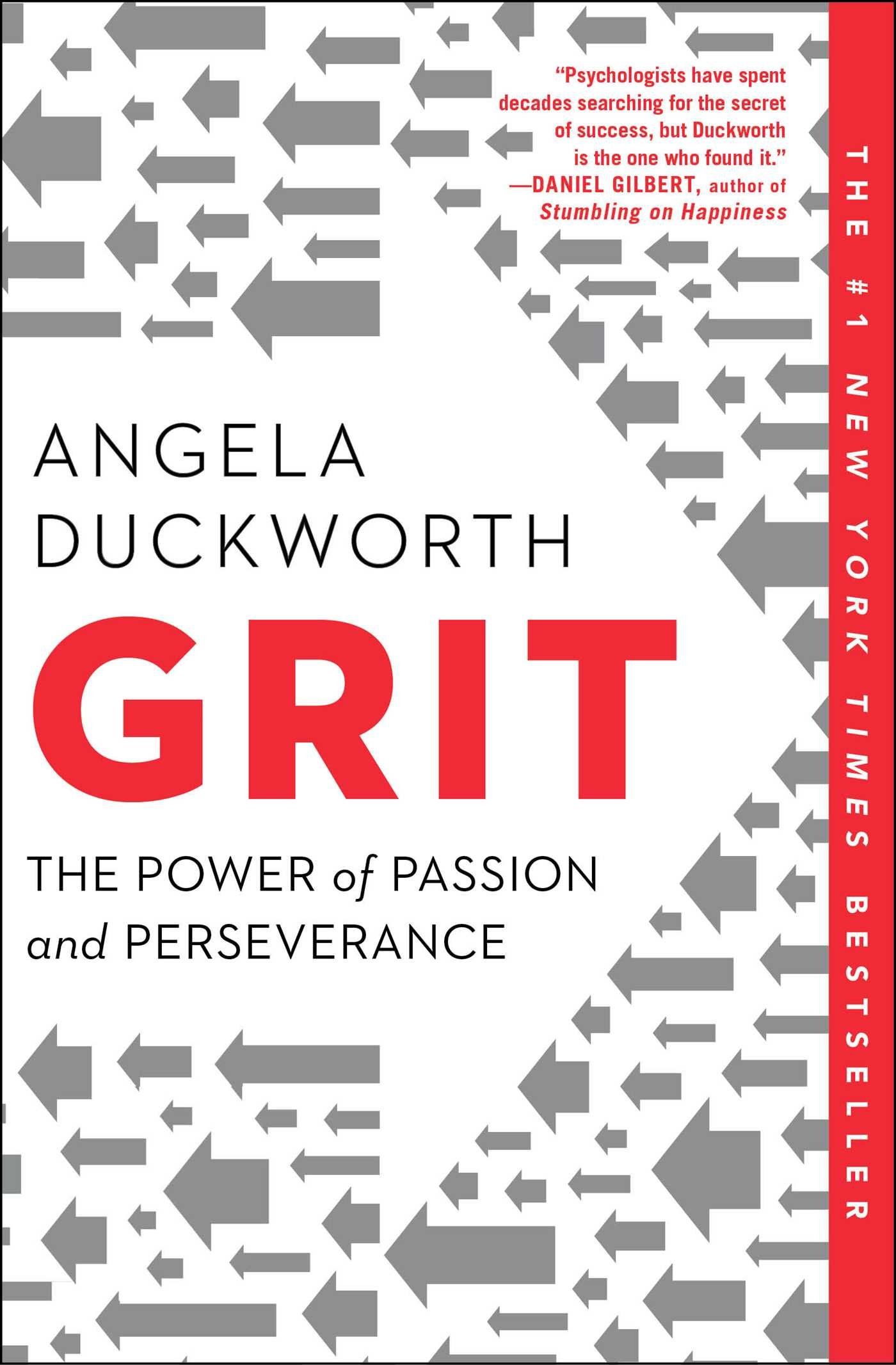
Personal Development
Tiny Experiments Book Summary
Anne-Laure Le Cunff
Tiny Experiments offers not just practical tools to make sure your most vital work gets done, but a guide to reawakening your curiosity and drive in a noisy, busy, disaffected world, so that you can discover and pursue your most authentic ambitions while making a meaningful contribution.

Personal Development
Self-Help
Feel The Fear And Do It Anyway Book Summary
Susan Jeffers
In "Feel the Fear and Do It Anyway," Susan Jeffers empowers readers to overcome their fears by shifting their mindset, embracing uncertainty, and taking bold action in the direction of their dreams.
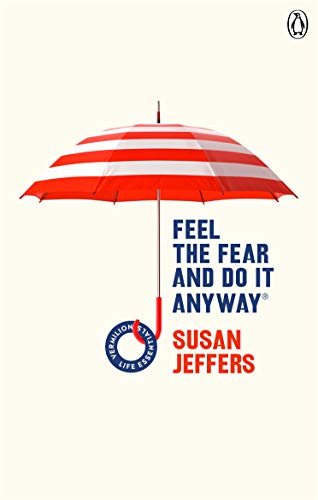
Productivity
Self-Help
Personal Development
Slow Productivity Book Summary
Cal Newport
In "Slow Productivity," Cal Newport argues that the key to producing meaningful knowledge work is rejecting busyness and distraction in favor of a more deliberate approach that prioritizes quality, focus, and a sustainable pace.
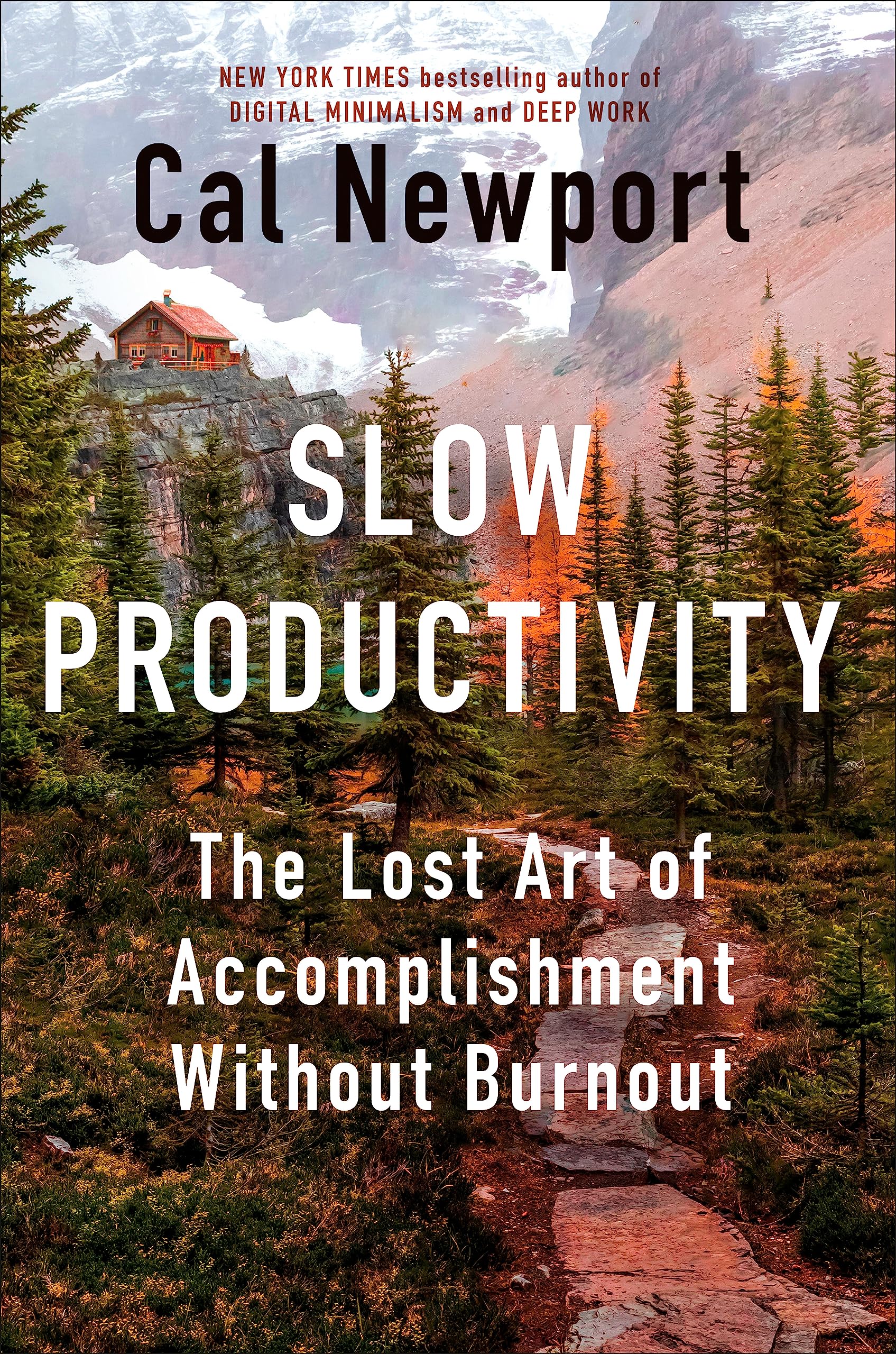
Psychology
Money
Self-Help
The Psychology of Money Book Summary
Morgan Housel
The Psychology of Money is a fascinating look at the strange ways people think about money and teaches you how to make better sense of one of life's most important topics. Doing well with money isn't necessarily about what you know; it's about how you behave, and behavior is hard to teach, even to really smart people.
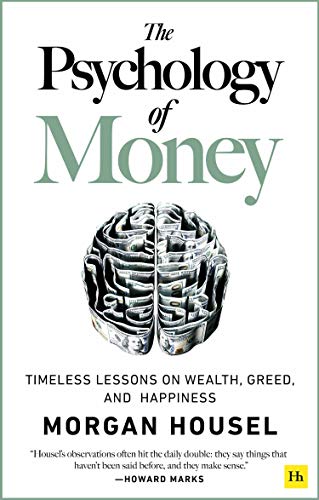
Personal Development
Learning
Psychology
Range Book Summary
David Epstein
"Range" challenges the conventional wisdom that early specialization is the key to success. Instead, Epstein argues that in our increasingly complex and unpredictable world, it is those with broad experience and diverse skills who are best equipped to thrive.
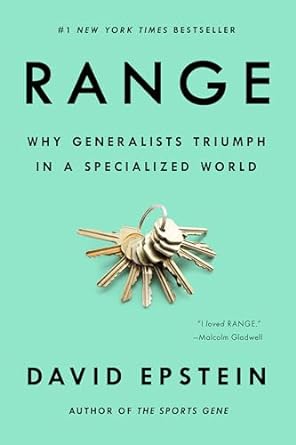
Psychology
Therapy
Self-Help
Personal Development
Why Has Nobody Told Me This Before Book Summary
Julie Smith
In "Why Has Nobody Told Me This Before?", Dr. Julie Smith shares practical insights and tools from therapy to help you navigate life's challenges, build resilience, and create a meaningful life aligned with your values.
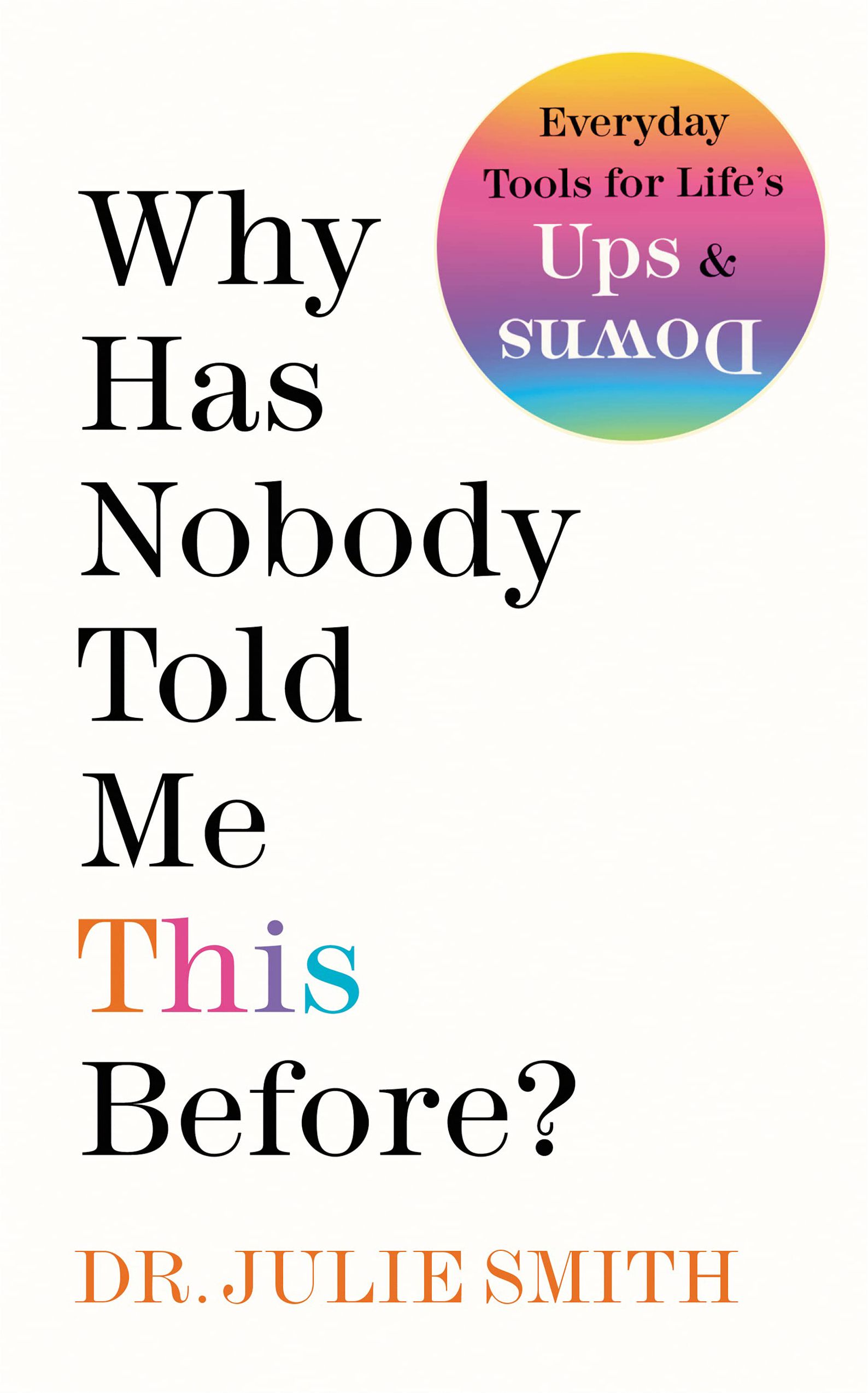
Psychology
Personal Development
Self-Help
Philosophy
The Subtle Art of Not Giving a F*ck Book Summary
Mark Manson
In "The Subtle Art of Not Giving a F*ck," Mark Manson argues that the key to a good life is not the pursuit of happiness, but rather the embrace of uncertainty, failure, and our own limitations - learning to care deeply about a few important things, and letting go of the rest.
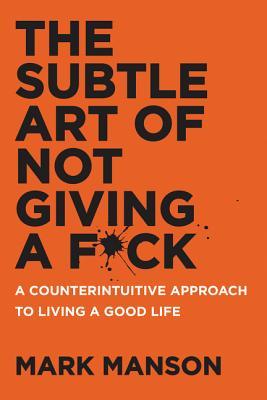
Life
Meaning
Money
Die With Zero Book Summary
Bill Perkins
Die with Zero is an unconventional guide that challenges traditional notions of saving and spending, urging readers to maximize their life experiences by investing in memories and relationships while they still have the time and health to fully enjoy them.
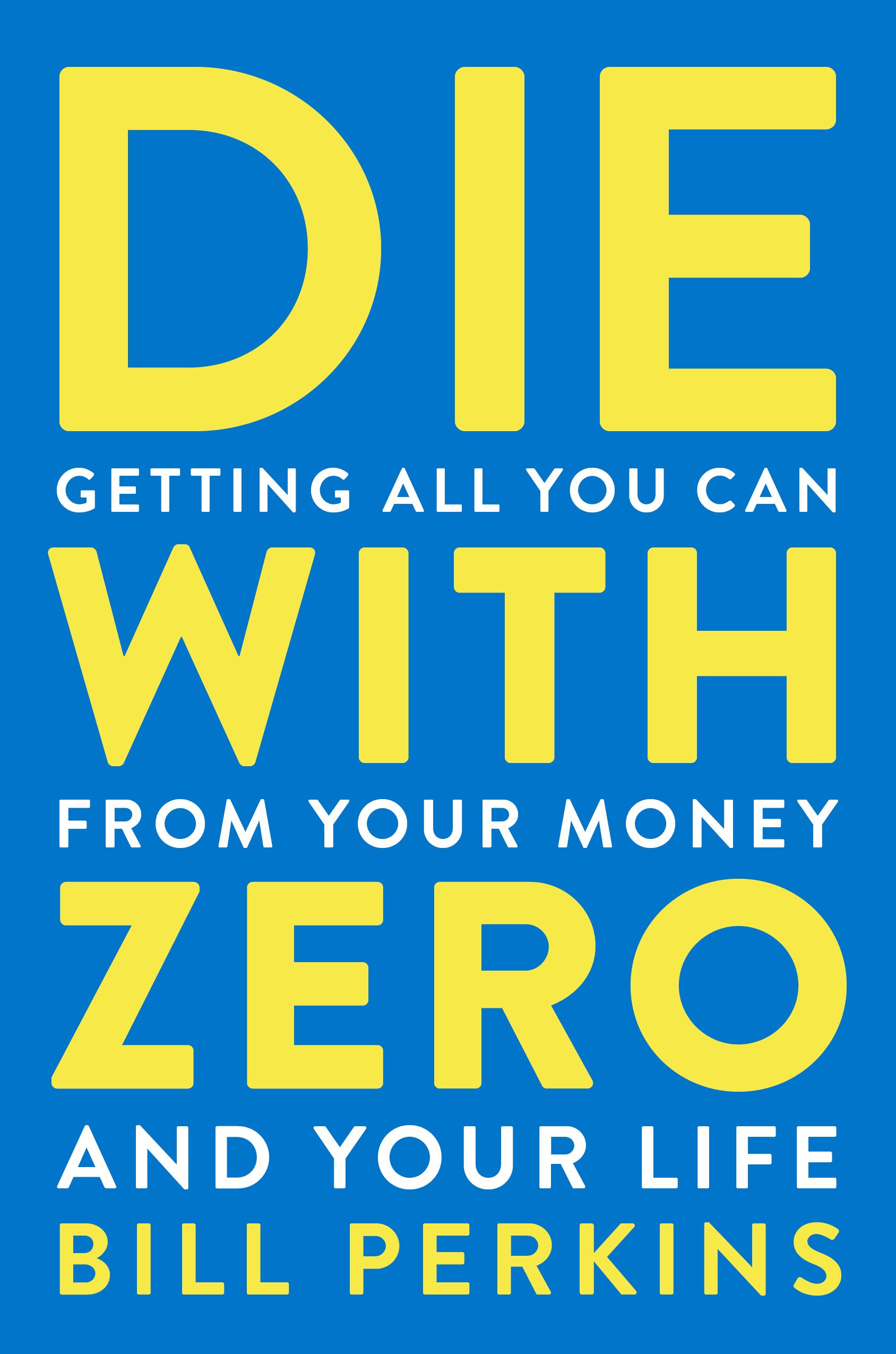
Personal Development
Self-Help
Psychology
The Mountain Is You Book Summary
Brianna Wiest
For centuries, the mountain has been used as a metaphor for the big challenges we face, especially ones that seem impossible to overcome. To scale our mountains, we actually have to do the deep internal work of excavating trauma, building resilience, and adjusting how we show up for the climb. In the end, it is not the mountain we master, but ourselves.

Personal Development
Money
Think and Grow Rich Book Summary
Napoleon Hill
"Think and Grow Rich" is a transformative guide that reveals how harnessing the power of thought, desire, and persistence can turn your dreams into reality, offering practical strategies to overcome mental barriers and achieve lasting success and wealth.
